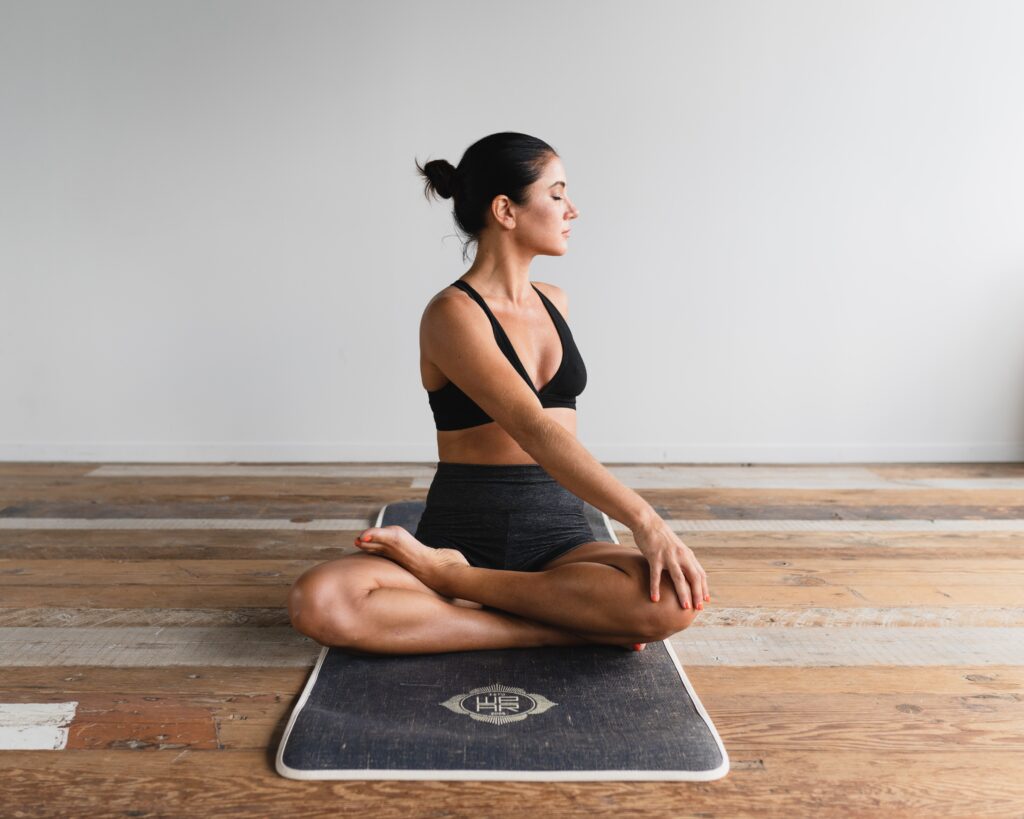Boost Performance with Mindful Meditation

Learning to be mindful as an athlete can assist performance in numerous ways. Being mindful allows athletes to become aware of their present situation while not judging themselves regarding their emotional, physical, and psychological responses. Instead, mindful athletes observe how they respond to specific environments and stimuli. They are open to improving upon past experiences and enhancing their performance. Athletes can boost performance with mindful mediation. This is not something that is typicaly on training plans but through enhancing self-awareness, athletes will benefit by increasing confidence and improving focus. They can also enhance their ability to retain information. All of these elements connect directly to performance.
Mindfulness Benefits
Mindfulness is beneficial for athletes for several reasons. Being mindful assists athletes in improving their mental clarity and concentration, and focus during performance. Mindfulness practices also help athletes with becoming more self-confident and reduce competition anxiety. This can be due to the athlete spending more time becoming self-aware and implementing self-regulation strategies. Another benefit mindfulness provides to athletes is that it helps decrease stress levels through natural modalities.
Athletes that implement mindfulness practices alongside their physical training set themselves up for success! Just as athletes train for their sport, they need to train their brains! Being proactive with their approach makes them feel better prepared during performance situations, such as calming a racing mind. When an athlete experiences this type of scenario during a race or competition, it can be very challenging to stay present and focused. Athletes can also experience feelings of anxiety, nervousness, or worry, which can transfer into performance issues, too.
Mindfulness Strategies
Several mindfulness strategies can be beneficial for athletes. Some examples include deep breathing exercises, journaling, and yoga. Another mindfulness strategy that many athletes use is meditation.
Meditation is a mental skills technique that athletes can use to become more self-aware and enhance performance. Meditation assists athletes in becoming attentive to specific moments and thoughts. It involves clearing the mind and observing thoughts and emotions without judgment. Most importantly, when practicing meditation, the goal is not to turn off feelings and thoughts. Instead, the goal is to help the athlete become aware of these feelings and thoughts without judgment. The primary key is for the athlete to feel connected to the practice and that it fits them!
Meditation Benefits
Medication can benefit an athlete physically and emotionally. The benefits of meditation include athletes experiencing enhanced confidence, decreased worry and anxiety, help with remaining presenting, boosting self-awareness, and improved focus and concentration. Meditation also helps athletes manage their stress levels. By managing stress levels, athletes might notice lower blood pressure, heart rate, and oxygen consumption, enhancing performance.
When an athlete is ready to implement meditation, they can utilize either an unguided or guided approach. An unguided meditation is when an athlete participates in silent meditation, where they meditate alone and pay attention to their body and thoughts throughout the process. A guided approach to meditation is when an athlete practices meditation utilizing a teacher or app to guide them through the practice.
Some athletes might find meditation intimidating and are concerned if they are doing it correctly. Other athletes might need help figuring out where to start with the process. These feelings are all valid, but the great thing is that every athlete can mold their meditation to best fit themselves. Meditation can be completed at any point during the day and in any location that suits the athlete. It also doesn’t take too long for an athlete to begin to experience the benefits of meditation if they’re consistent with the practice.
A few suggestions for athletes to consider when ready to implement meditation include the following.
- Start small. Meditation sessions can take only a short time. Aim for five minutes a day and progress naturally.
- Stay consistent. Change takes time! Practicing each day will gradually build the foundational base of this skill.
- Recognize that the mind will most likely wander. This is extremely natural, and instead of trying to fight it, welcome the fact that the mind might not stay focused and that distractions might be present!
As an athlete begins to implement meditation into their training, they must realize there is no right or wrong way to meditate! However, the athlete who chooses to meditate is perfect! Their meditation provides their space for mindfulness, growth, and self-awareness.
Advertisement

JoAnne Bullard is a Doctor of Sport and Performance Psychology and a Certified Mental Performance Consultant through the Association for Applied Sport Psychology. She is also a Certified Strength and Conditioning Specialist through the National Strength and Conditioning Association.
She serves as a tenured Associate Professor at Rowan University and is the owner of Absolute Fitness, LLC. Her goal is to provide a holistically applied approach for clients through performance psychology consulting. She has experience working with athletes of all ages, including endurance athletes, in individual and group sessions. Her research areas include mindfulness, performance anxiety, goal setting, coping strategies, and mental well-being of athletes.
She has completed five marathons, numerous half-marathons, and is always looking for her next race.









